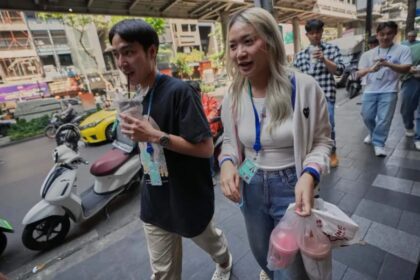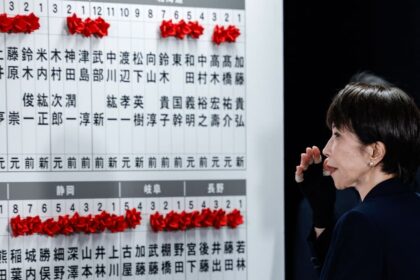Singapore’s Crackdown on Voucher Resale: Protecting Social Support and Public Trust
Singapore’s government is taking decisive action to curb the unauthorized online resale of cost-of-living vouchers, a move that highlights both the challenges of digital marketplaces and the importance of targeted social support. The crackdown, led by the country’s community development councils (CDCs), aims to remove listings for CDC and SG60 vouchers from e-commerce platforms such as Carousell, following a surge in online sales and mounting concerns about fraud and misuse.
- Singapore’s Crackdown on Voucher Resale: Protecting Social Support and Public Trust
- Why Are CDC and SG60 Vouchers Being Sold Online?
- Public Reaction and Real-World Impact
- How Are Authorities Enforcing the Crackdown?
- What Are the Broader Implications for Singapore?
- Expert and Official Perspectives
- In Summary
The CDC voucher scheme, launched in 2020 in response to the economic fallout from the Covid-19 pandemic, was designed to help Singaporean households manage rising living costs and to support local merchants. The SG60 vouchers, distributed in 2025 to commemorate Singapore’s 60th year of independence, represent a significant government investment in social welfare. However, the appearance of these vouchers for sale online has prompted authorities to act swiftly to preserve the integrity of these programs and ensure that aid reaches its intended recipients.
Why Are CDC and SG60 Vouchers Being Sold Online?
The CDC and SG60 vouchers are intended as direct financial assistance for Singaporean citizens. The CDC vouchers, most recently distributed in May 2025, provide S$500 per household and are valid until December 31, 2025. SG60 vouchers, rolled out in July 2025, offer S$600 to citizens aged 21 to 59 and S$800 to those 60 or older, with validity until December 31, 2026. Both can be used at eight major supermarket chains and over 23,000 participating hawker stalls and heartland businesses across the island.
Despite clear rules prohibiting resale or exchange for cash, listings for these vouchers began appearing on online marketplaces almost immediately after their release. Sellers often bundled CDC and SG60 vouchers together, advertising them under generic terms like “CD Vouchers” or “supermarket voucher” to evade detection by platform moderators. Most listings were priced below the vouchers’ face value, offering buyers a discount while allowing sellers to convert government aid into cash.
This practice undermines the government’s intent to provide targeted support and raises concerns about fraud, especially when vulnerable individuals—such as the elderly—are involved in such transactions.
How Do Online Marketplaces Respond?
Carousell, one of Singapore’s most popular online marketplaces, has stated that it takes unlawful transactions seriously. The company employs artificial intelligence to monitor listings and remove those that violate its rules. Users are also encouraged to report suspicious or illegal listings. However, the sheer volume of listings and the creativity of sellers in circumventing moderation tools have made enforcement challenging.
According to a CDC spokesperson, the councils are now working directly with e-commerce platforms to proactively identify and remove voucher listings. This collaborative approach is intended to close loopholes and send a clear message that the resale of government-issued vouchers will not be tolerated.
Public Reaction and Real-World Impact
The crackdown comes amid a broader wave of concern about online scams and fraudulent activity in Singapore. E-commerce scams have surged in recent years, with over 11,000 cases and at least S$17.5 million lost in 2024 alone. While concert tickets and other high-demand items are the most common targets, the appearance of CDC and SG60 vouchers in online scams has drawn particular attention due to their role in supporting vulnerable groups.
One widely discussed incident involved an elderly man who was reportedly scammed out of his CDC vouchers at a mixed rice stall in Redhill. The case, which went viral on social media, sparked debate about the risks faced by seniors and the need for better public education on voucher use. While the stall in question denied any wrongdoing, the controversy underscored the human impact of voucher-related fraud and the importance of robust enforcement.
Reddit and other online forums have seen users warn each other about scams involving CDC vouchers, with some expressing frustration at what they see as inadequate safeguards. Others have questioned whether the crackdown will be effective, given the persistent demand for cash and the ingenuity of those seeking to profit from government aid.
Broader Context: The Role of Vouchers in Singapore’s Social Safety Net
Singapore’s voucher programs are a cornerstone of its approach to social welfare. By providing direct, targeted assistance, the government aims to help households cope with inflation and rising costs without distorting market incentives or creating dependency. Vouchers also serve to channel spending toward local businesses, supporting the broader economy.
The CDC voucher scheme, in particular, was introduced as a response to the economic challenges posed by the Covid-19 pandemic. It has since become a recurring feature of Singapore’s social policy, with periodic distributions to help citizens weather economic shocks. The SG60 vouchers, meanwhile, are part of a broader package of measures to mark the nation’s milestone anniversary and reaffirm the government’s commitment to inclusive growth.
However, the effectiveness of these programs depends on their integrity. If vouchers are routinely resold or exchanged for cash, the intended benefits may be diluted, and public trust in government initiatives could be eroded.
How Are Authorities Enforcing the Crackdown?
Enforcement of the voucher resale ban relies on a combination of technology, public reporting, and collaboration with online platforms. Carousell and similar sites use artificial intelligence to detect prohibited listings, but the system is not foolproof. Sellers often use coded language or bundle vouchers with other items to avoid detection.
To address these challenges, the CDCs are stepping up their efforts by working directly with e-commerce companies to identify and remove listings. The government has also called on the public to report suspicious activity, emphasizing that the sale of CDC and SG60 vouchers is strictly prohibited and may result in legal action.
Public education campaigns are also underway to inform citizens about the risks of buying or selling vouchers online. The authorities have warned that vouchers obtained through unauthorized channels may be voided, and buyers could lose both their money and the ability to use the vouchers.
Lessons from Other Sectors: The Broader Fight Against Online Scams
The crackdown on voucher resale is part of a wider effort to combat online fraud in Singapore. Recent years have seen a spike in scams involving everything from concert tickets to National Day Parade (NDP) tickets. In 2025, at least five cases of NDP ticket sale scams were reported, with victims losing money after paying for tickets that never materialized. The police have repeatedly reminded the public that NDP tickets are not for sale and that any online listing is likely a scam.
These incidents highlight the challenges of regulating digital marketplaces, where anonymity and the ease of listing items make enforcement difficult. The government’s approach has been to combine technological solutions with public education and close cooperation with platform operators.
What Are the Broader Implications for Singapore?
The crackdown on voucher resale raises important questions about the balance between convenience, security, and social equity in the digital age. On one hand, online marketplaces offer consumers unprecedented access to goods and services. On the other, they create new opportunities for fraud and abuse, especially when government aid is involved.
For Singapore, maintaining the integrity of its social support programs is a top priority. The CDC and SG60 vouchers represent a significant investment in the well-being of citizens, particularly those most affected by rising costs. Ensuring that these resources are used as intended is essential for public trust and the effectiveness of government policy.
The crackdown also sends a message to would-be scammers and opportunists that the government is watching and will act to protect the interests of ordinary Singaporeans. At the same time, it underscores the need for ongoing vigilance, both by authorities and the public, in the face of evolving digital threats.
Expert and Official Perspectives
Officials from the CDCs have emphasized that the voucher schemes are designed to provide direct support to households and local businesses, not to be traded for cash or resold for profit. In a statement, a CDC spokesperson said:
“These vouchers are not for resale and are not exchangeable for cash. The CDC voucher scheme was launched to help households with living expenses and support merchants affected by the Covid-19 pandemic. We are working closely with e-commerce platforms to ensure that listings for these vouchers are removed promptly.”
Carousell, for its part, has reiterated its commitment to maintaining a safe and lawful marketplace. A company representative explained:
“We take unlawful transactions seriously and use artificial intelligence to monitor listings. Users are encouraged to report suspicious or illegal listings, and we remove those that breach our rules.”
Experts in digital security and social policy note that while technology can help, public awareness and education are equally important. Dr. Tan Mei Ling, a sociologist at the National University of Singapore, commented:
“The effectiveness of voucher programs depends not just on enforcement, but on public understanding of their purpose. When people see vouchers as a form of cash, the risk of misuse increases. Clear communication and community engagement are key to ensuring that aid reaches those who need it most.”
In Summary
- Singapore is cracking down on the online resale of CDC and SG60 vouchers, working with e-commerce platforms to remove unauthorized listings.
- The CDC and SG60 voucher schemes are designed to provide targeted support to households and local businesses, not to be traded for cash.
- Online resale undermines the integrity of these programs and exposes vulnerable individuals to fraud.
- Authorities are using technology, public reporting, and collaboration with marketplaces to enforce the ban.
- The crackdown is part of a broader effort to combat online scams and protect public trust in government aid programs.
- Public education and vigilance remain crucial to the success of these initiatives.












